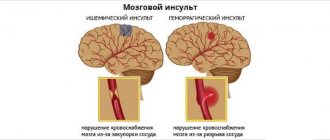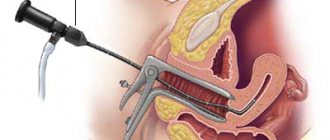Lecture on the dangers of smoking
Date of publication: June 06, 2021. Category: News.
Every 10 seconds, one smoker on Earth is killed. In Russia, deaths from smoking exceed 600 people per day.
How do you usually start your morning? From a cup of delicious aromatic coffee that is steaming on the table? Or maybe coffee is not everything, and you still have an unlit cigarette in your hand... How nice it is to feel its pleasant glossy smoothness in your fingers. And feel confident! But the first puff, and the smoke is in your lungs. And the morning becomes familiar, and it no longer matters whether you go to work or do other useful things. The main thing is that you already have SHE - the Queen Cigarette, and how great it is to realize that after completing all the difficult tasks you can take a puff or two of sweet but destructive smoke.
And sometimes it happens...
…that time is stretching and there is too much of it. And then you want to kill him. And the hand itself reaches out... Where? Of course, for a cigarette. And time flies faster, and there is something for you to do. And the wait seems to pass unnoticed. But, if you look deeper, what awaits us in the future? You think that you are killing time, but it is at this very time that the cigarette is killing you.
Many scientists recognize that smoking is slow suicide. The harm caused by smoking does not appear immediately, but is usually cumulative. The consequences begin to appear after 10–15 years.
Smokers, like alcoholics, have their own stages of the disease.
In the first stage, a person smokes up to a pack of cigarettes a day. In this case, he breathes air whose pollution is 600–1200 times higher than hygiene standards.
In the second stage of nicotine syndrome, when there is an obsessive craving for smoking, the first signs of trouble in the body already appear - discomfort in the heart, instability of pulse and blood pressure, heartburn, increased irritability, heaviness in the head, sleep disturbance, decreased performance, etc.
In the third stage they smoke on an empty stomach and at night. Such people are constantly bothered by a dry, painful cough. Serious diseases of the cardiovascular, respiratory and digestive systems can already develop here.
Tobacco smoke contains over 4 thousand chemical compounds and substances, most of which are toxic, mutagenic or carcinogenic. The absorption of harmful substances begins directly with the entry of tobacco smoke into the mouth through the mucous membrane and further along the larynx into the lungs. Saliva, entering the stomach, also carries this poison with it.
Here are the effects of some of them:
Nicotine
an alkaloid found in tobacco. A powerful poison that, in small doses, has a stimulating effect on the nervous system. In large cases, it causes paralysis (a person injects about 2 kg of nicotine over his entire life, this is enough to kill 2000 people when injected simultaneously). As a result of prolonged exposure to the body, nicotine addiction occurs. Nicotine aggravates the course of a number of diseases (atherosclerosis, gastritis, hypertension, thrombophlebitis, myocardial infarction, peptic ulcer, etc.).
Hydrocyanic acid
strong poison. When inhaled, it stimulates an increase in the frequency and depth of breathing. Once in the blood, it affects its cells, reducing their ability to perceive oxygen. The result is oxygen starvation. Also, as a result of tissue hypoxia, the functions of the nervous system are disrupted.
Carbon monoxide
as a result of connection with hemoglobin, it replaces oxygen, resulting in oxygen starvation, which affects all human organs.
Resin
The biggest evil of cigarettes. Once in the body, it settles on the walls of the lungs and becomes coked there. As a result, cancer occurs (smoking increases the risk of 12 forms of cancer), destruction of the immune system.
Tars contain carcinogenic polycyclic aromatic carbohydrates (PAHs) and tobacco-specific nitroso compounds. However, a low level of tar in cigarettes does not necessarily mean that they contain little of these extremely harmful substances. With the same tar content, the level of nitroso compounds in cigarettes can vary two or more times. Concentrations of PAHs and nitroso compounds are not regulated in any country in the world. This essentially means that people who smoke even expensive brands of low-tar cigarettes are exposed to risks that the tobacco companies do not inform them about.
Radioactive components found in very high concentrations in tobacco smoke include polonium-210 and potassium-40. In addition, there are radioactive components such as radium-226, radium-228 and thorium-228. It has been established that radioactive components are carcinogens.
Effect of smoking on the brain
As a result of the replacement of oxygen with carbon dioxide, oxygen starvation of the brain occurs. Glucose in the blood stops oxidizing, its level rises and brain cells stop receiving signals to stay awake. As a result of improper functioning of the brain, a person begins to suffer from narcolepsy. Cigarette tar increases free radicals in the brain, which also damages it. Even small doses of nicotine reduce mental abilities by 14 and sometimes 25%. The smoker degrades. A stroke for a smoker is also one of the possible outcomes.
Effect of smoking on the heart
Smoking is the main cause of damage to the coronary arteries of the heart and other cardiovascular diseases. After smoking each cigarette, the heart begins to work faster, as a result, the heart of a smoking person makes 12-15 thousand more contractions per day than a non-smoking person, which leads to premature wear of your engine. The direct connection between smoking and diseases such as myocardial infarction, coronary heart disease, and hypertension has been scientifically proven. Pay attention to these symptoms - a prolonged attack of acute compressive pain in the center or left half of the chest, collapse, fever, feeling of fear, suffocation. All this is the result of smoking.
Effect of smoking on the lungs
As studies by doctors show, the consequences of smoking are the most painful for the lungs. The smoke enters the trachea and divides into 2 main bronchi, enters the bronchioles, and ultimately penetrates into the very structure of the human lungs - into the respiratory sacs or acini. The human respiratory tract - trachea, bronchi, bronchioles - is covered with delicate ciliated epithelium, which flickers against the air flow. It is here that the smallest particles of air and smoke settle, and the lungs cleanse themselves.
If there are impurities in the air, they settle on the ciliated epithelium and, together with sputum, are removed from the respiratory tract. All harmful substances contained in smoke accumulate on the epithelium. When smoking, with each new puff there are more and more of them. As a result, the ciliated epithelium cannot cope with the resin deposited on it, and other protective systems of the body are activated - cough. The cough will repeat until it clears the airways of dirt. It is because of this that a smoker can be recognized by his constant cough - his body is trying to get rid of tar and other harmful substances.
All substances contained in the smoke settle in the bronchi, but the ciliated epithelium and cough cannot completely clean them out. As a result, these harmful substances irritate the cells of the bronchi, bronchioles and alveoli and inflammation begins.
The more a person smokes, the less strength the body has to defend itself. This is where the main problems and diseases begin, such as chronic bronchitis, emphysema, asthma attacks, a tendency to respiratory diseases and their long-term course, the risk of developing cancer increases 6 times.
Cancer of the lungs, trachea, bronchi, pneumonia, chronic bronchitis, tuberculosis is not the entire list of diseases to which smokers are susceptible. Moreover, the more and longer a smoker smokes, the more susceptible he is to these diseases (up to 60–70% more than non-smokers). If you are suffering from a constant painful cough, hemoptysis, repeated pneumonia, bronchitis or chest pain, then you need to urgently quit smoking and consult a doctor.
Effect of smoking on vision
The effects of tobacco smoke have an extremely negative effect on the organs of vision. Smokers very often develop blurred vision that is not accompanied by visible changes in the eyeball, so-called amblyopia. Light perception impairment may also develop. In some cases, smoking can even lead to blindness. The London Institute of Ophthalmology found that smokers have a 3-fold increased risk of going blind in old age. Smoking slows down the metabolism in the body; as a result, microelements so necessary for the functioning of the visual organs do not reach them. In addition, vision suffers from a lack of blood supply, which is also caused by smoking.
The effect of smoking on the reproductive system
Smoking negatively affects the sexual function of both men and women. It is believed that in smokers the development of infertility increases by 11. In women who smoke 10 cigarettes a day, the risk of infertility increases by 2 times. If a woman who smokes becomes pregnant, her risk of miscarriage increases compared to non-smokers. In addition, breast cancer is 4–5 times more common in women who smoke.
The effect of smoking on appearance
Very often, smoking causes yellowing of teeth and nails, bad breath and a gray appearance of the skin. In addition, smokers have a metabolic disorder, which results in problems with body weight.
In general, we can conclude that besides the negative aspects, smoking does not give anything else. However, don't despair. Today there are many methods to quit smoking. We will talk about them later.
Separately about the dangers of menthol cigarettes.
Of course, no one doubts that menthol cigarettes are just as harmful as regular cigarettes, but according to the latest data, it turns out that they are even more insidious and harmful than non-menthol cigarettes. Many experts believe that the milder, cooling taste of menthol cigarettes causes smokers to inhale more deeply, introducing more harmful substances into their lungs. Deep inhalation of smoke allows them to smoke faster and smoke more cigarettes in a shorter time.
As the researchers note, this is due to the fact that menthol cigarettes, due to their refreshing effect, seem to taste more pleasant than regular cigarettes. However, this feeling is deceptive.
However, despite doctors' warnings, the popularity of menthol cigarettes among young girls continues to grow. Among other things, this is due to the fact that, as previously conducted studies have shown, young ladies smoke a larger number of such cigarettes per day, as a result of which addiction to them develops faster than to ordinary tobacco products. Other popular flavors for cigarettes - vanilla, strawberry, apple, chocolate, etc. - have the same effect.
Scientists have found that when smoking menthol cigarettes, the absorption of nicotine and tobacco tar into the blood occurs faster than when smoking regular cigarettes. The reason for this is that menthol cigarettes irritate the receptors of the oral mucosa, as a result of which the coronary vessels and bronchi dilate. This means that the consequences of smoking such as chronic bronchitis, emphysema and lung cancer will occur in such smokers earlier than in other smokers.
In addition, scientists have found that it is more difficult for people who smoke menthol cigarettes to quit tobacco addiction than people who prefer regular cigarettes. This conclusion was reached by Dr. Mark Pletcher and colleagues from the University of California at San Francisco (UCSF) based on the results of a 15-year study involving one and a half thousand smokers.
One of the reasons, he believes, is the "improved" taste, coupled with a refreshing, local anesthetic-like effect, which makes the smoker more enjoyable.
It is also possible that menthol prolongs breath holding and affects the metabolism of nicotine, the concentration of which in the blood thus increases. Based on the findings, the researchers concluded that when menthol smokers try to quit the habit, they are likely to need more social and medical support. The chances that they will “smoke” again are 2 times higher than those of “regular” smokers. Interactions between drugs and tobacco smoke in smokers
Smoking affects the effectiveness and safety of medicines. And this is no longer an assumption, but a proven scientific fact. Tobacco smoke can change the metabolism of a number of drugs due to its activating effect on the liver enzymes of the cytochrome system, reduce absorption, and reduce the effectiveness of a number of diuretics and antianginal drugs.
It is known that nicotine, one of the main components of tobacco smoke, interferes with the absorption of drugs and affects the binding of drugs to blood proteins.
Those who quit smoking usually face a number of problems.
In the first weeks, the chances of catching a cold in such people increase significantly. Pain in the larynx, sneezing and coughing appear. All this is associated with temporary suppression of the immune system. In addition, tobacco itself has some kind of antimicrobial effect, which those who quit smoking lose.
During this first month, some side effects of removing nicotine from the body will appear. These are irritability, nervousness, non-clinical depression, loss of concentration, dizziness, sleep disturbance, a feeling of apathy, nightmares. A person becomes irritable and can lash out for no reason. Headaches and toothaches may occur. . This is a very difficult period, and many cannot stand it. But you're not one of them, are you?
Some people have problems gaining weight. Nicotine withdrawal, cravings, withdrawal symptoms, etc., all these negative experiences can simply be consumed by food, which leads to weight gain. However, it should be noted here that with proper adherence to diet and physical activity, this change usually occurs in the region of 0.5–1 kilogram.
There is no need to despair and be afraid of all these problems, especially since they last for a couple of months. At this time, the body adjusts to a new rhythm. Now for the good stuff.
Positive aspects of quitting smoking
When you quit smoking, first of all, the level of nicotine and carbon monoxide in your blood will decrease. Carbon monoxide, combining with red blood cells, prevents the supply of oxygen to the muscles. Energy levels increase quickly if you don't smoke for the entire day.
Within two days, breathing will begin to improve and lung function will begin to recover. Surprisingly, the risk of lung cancer also decreases after just two days.
As for quality of life, it is worth noting one month after you smoke your last cigarette. Energy levels will improve with blood circulation. You will become more accurate in your sense of taste and smell. Your skin will look better. Wrinkles will not appear as deep, and you will look younger. This is what happens when you quit smoking.
The cough and hoarse voice go away within a year. Any chronic bronchial irritation will also begin to subside. However, any damage to the lung such as emphysema - destruction of the elasticity of the lung - will remain at the same stage. Unfortunately, these changes are not fixable.
After the first year, the risk of heart failure is reduced by half compared to smokers. Over the next 15 years, the risk of heart failure decreases to that of a never-smoker. Along with this, the risk of lung cancer is halved. These reasons, perhaps, best show what happens when you quit smoking and they are the most significant for those who are thinking about quitting or not. Remember, withdrawal pangs last less than a month, if you don’t go through them, you will lose much more.
In addition, do not forget that you will save the money you spend on cigarettes. It’s easy to calculate that if you spend 30 rubles a day on cigarettes, the savings over the year will be almost 11,000 thousand rubles. I think you will find where to spend it)).
How to restore your brain after smoking?
First of all, you need to give up cigarettes, and within just 3 days, nicotine will be completely eliminated from the body. The normal elasticity of the blood vessels supplying the brain is restored within 3–4 weeks.
You can help your body recover faster. Walking in the fresh air, moderate physical activity, eating fresh fruits and vegetables, and herbs are useful for this. Reading and solving puzzles have a beneficial effect on brain functioning. But even without additional manipulations, you will feel much better after quitting smoking, because the poisoning of the body will stop, each cell will begin to receive more oxygen, and the whole body will begin to come to life. And the brain first of all.
At the Allen Carr Center you can get help overcoming nicotine addiction. Give up the “bad habit” today and protect your intellect from destruction, and your personality from degradation.
One of the main causes of vascular diseases, including the brain and heart, is cigarette smoking. Their effect on the body is realized through rapid changes in the composition of the blood, which carries nicotine and other toxic substances absorbed from the mucous membrane of the mouth and respiratory tract. Of all the organs of the human body, the brain suffers the most from tobacco toxins, since it is the brain that receives the largest dose of neurotoxic poison. What is the effect of smoking on the brain and cerebral vessels and what causes the appearance of nicotine addiction - read the article.
It's better to lie under the exhaust pipe
| How quickly does nicotine become addictive? | |
| It depends on many factors. From the age at which you started smoking, from your physical condition, from your weight. It is important how often you used tobacco products and what kind when you started smoking. The more often a person smokes cigarettes with a high nicotine content, the faster he becomes addicted. Since most smokers acquire their addiction in their youth, after only 1–2 months of smoking they find themselves captive to addiction. | |
Italian scientists came to this conclusion. They locked the car with the diesel engine running in the garage for 30 minutes. Then the garage doors were opened for 3 hours and emissions were measured. Then, in the garage, three cigarettes smoldered one after another for 30 minutes. When the measurements were repeated, it turned out that the concentration of harmful substances in the air after the engine was running was 2 times higher than the norm, and after smoldering cigarettes – 15 times!











